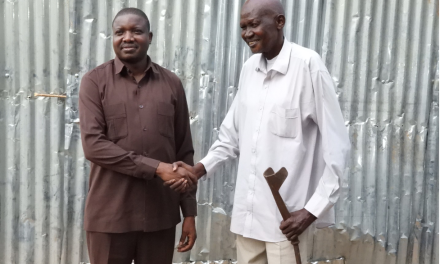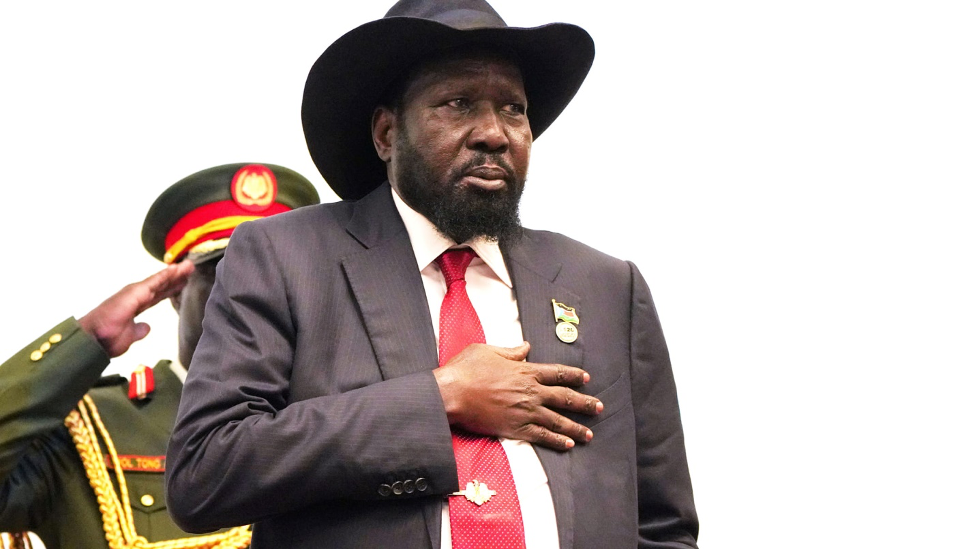
WFP Optimistic On Mitigating Hunger In South Sudan

By Simon Deng and Okech Francis
Funding shortfall created by the COVID-19 pandemic as well as natural disasters are obstructing response in an increasing humanitarian crisis in South Sudan yet the United Nations World Food Program is optimistic 5 million people will be reached with food aid this year.
South Sudan is projected to face the worst food crisis with 7.24 million people in dire need.
Among them, 108,000 are already facing catastrophic levels, just about famine, according to WFP.
On Thursday, the agency received a $3.2 million contribution from the government of Japan which will be used to purchase 1,700 metric tons of rice, to feed over 40, 000 people for four months.
It’s a relief where funding shortfall had led WFP to reduce rations to people in need.
The agency is hopeful such assistance will keep coming to help the humanitarian situation round the year.
“The funds from the people of Japan will help us ensure no one is left behind,” Adeyinka Badejo, WFP Deputy Country Director said in Juba.
“This timely contribution will allow WFP to continue providing life-saving food and nutrition assistance to more than 40,000 food-insecure people in areas experiencing severe levels of hunger at the height of the lean season,” she said.
Mitsuhiro Toyama, Japan Embassy Charge d’affaires said that Japan has since Independence donated over $61 million to WFP to address severe food insecurity,
Toyama said his government will continue to provide support towards food assistance and security in South Sudan.
“Japan has cooperated with WFP to provide humanitarian needs to improve food security in South Sudan, we have supported resilience related activities to enhance food security, we will continue to work with WFP to tackle these challenges,” Toyama said.
Badejo said WFP has plans to focus on rebuilding of livelihoods to ensure sustainability of food security in South Sudan.
“We are expanding our food assistance for assets programmes to direct more investments to improve community infrastructure, develop productive assets and ensure the transfer of knowledge and skills to enable food insecure communities to transition from humanitarian assistance to self- reliance,” Badejo said.
“What we have been doing and what we plan to continue to do is to use our food assistance strategically to build resilience, resilience to recurrent shocks,” she said.
“These shocks could be climate induced or conflict induced, what is important is to build the resilience of communities so that they can withstand shocks.”
The United Nations Mission has warned looting of food aid is affecting response and cannot be ignored.
In Tonj of Warrap State, a four-month food supply prepositioned by WFP, intended for 41,000 food-insecure people was looted or destroyed when armed youth from Paliang and Marial-Lou clashed, according to UNMISS head, Nicholas Haysom
In May, more than one million dollars’ worth of humanitarian supplies and assets were looted and destroyed during armed attacks in Gumuruk, impacting the delivery of assistance to an estimated 130,000 people, he said.
“These acts of criminality must stop. The support of donor partners and the hard work of our humanitarian partners cannot be taken for granted. Those who perpetrate violence and loot should be brought to justice.”
Badejo also noted “opportunistic looting” is taking place but affecting only 0.5 percent of food provisions.
“Whenever we have road access, we are trying to move food to reach people and then in some situation because of poor road conditions, our trucks get stuck in the mud and while we are stuck there are those opportunistic raiders who come to attack drivers, steal their cell phones, steal the food that they are travelling with,” Badejo said.
“This is what is happening and it is affecting our humanitarian response because we are already facing a situation where we have reduced funding.”



































